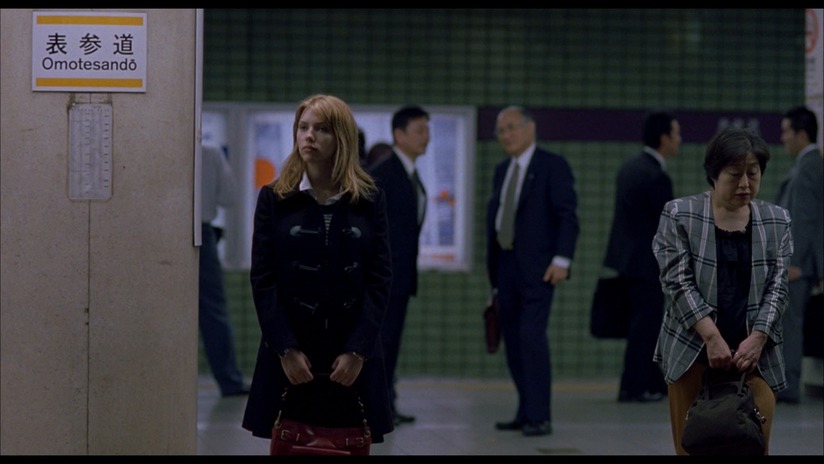Smile! You’re on Camera: Memoirs from a Full-Time Foreigner
Foreigners often get a bad wrap, their reputation clouded by local prejudices and tainted by past errors of other foreigners. Wherever they are, wherever they’re from, whatever they look like, the odd ones out will always get extra attention. Sometimes – particularly when you’re very new to this place – that attention can be daunting and frustrating.
Arriving somewhere entirely different from your home, with little or no ability to speak the local language, and after being uprooted from familiar surroundings (whether it was your choice or not), is a stressful experience.
The struggle of those first few days or weeks is a real test of your conviction.
When your exhaustion is met by a rock-hard mattress, your thirst by undrinkable water, your hunger by strange foods and inability to order them, and your homesickness by strangers and an empty apartment, life can seem pretty rough.
These are not just problems that occur during the first few weeks – they are ongoing issues you continue to tackle long-term, with the hope you simply get used to your surroundings. As is that strange feeling of alienation when the people around you stare.

(Image via)
I’ve lived in Beijing a little over a month now. The stares haven’t stopped, nor do I expect them to. If anything, as I grow more aware of my surroundings and come into contact with greater numbers of people, I notice them increasingly more.
What is it that makes me so interesting?
Is it the colour of my skin, the shape of my face, the clothes that I wear? I don’t know, but something about me seems to fascinate many of the people I pass in the street, meet in shops or who serve me in restaurants. A lot of people will even have the audacity to take photos – with or without permission.
I know some people – those who have been away from home a little longer, or who simply don’t have the disposition to revel in foreigner fame – who say no to photographers, complain about the stares and frown at the ground to avoid all unwanted attention. Of course, some days we all feel the desire to shut out the world, no matter where we are. But if we don’t engage with people, what does that do to the general reputation of us as foreigners, when we are in a new place?
On my first ever day in Beijing (May 2013), I was wandering around a downtown park, minding my own business, when a Chinese man, standing no more than 5 metres away, pointed a long-lens camera directly at my face. Unfazed, having grown up in a family of photography, I looked straight down the lens and smiled my cheeriest grin.
Surprised at my reaction (and possibly embarrassed he’d been caught), the man lowered his device and smiled back.
We shared a moment of recognition before he turned away to keep photographing the peonies.
He had seen me as another human being with a personality and sense of humour, not simply as a foreigner.
Perhaps this was a start to changing individual attitudes. That man had probably seen a lot of foreigners in Beijing before – it’s a big city with a huge expatriate community and is full of popular tourist spots like the park I was in.
Just a few weeks ago, on my first long sojourn beyond the confines of the big city, I was part of a group staying in a small town in Inner Mongolia. For a friend’s birthday celebrations we went to the local karaoke place, where all the staff and other patrons were local to this tiny town, Jingpengzhen Hexigten.
Most of them had never seen a single foreigner before, let alone seven at once.
Every time we left our little room – even just to go to the loo – we’d have staff members asking to have their photos taken with us.
Late in the evening – just when we’d lit the birthday candles – the whole entourage from next door’s family party flooded in to join us. Mothers, sons, sisters and fathers all needed their photos taken with the birthday boy (whose face both father and son smeared with cream from atop the cake, which was as yet untouched), with the three white women and the group as a whole.

(Image via)
Everyone wanted in on the action – even the manager wanted a photo with the smiling foreigners, probably to advertise the karaoke joint. The rather drunk father toasted us (having helped himself to a bottle of our beer), warmly welcoming us to China.
If we had frowned and turned down their requests, what kind of impression would we have made?
If we’d told them to leave us alone and not to touch our cake, that twelve-year-old boy might have grown up disliking foreigners for no good reason.
For our momentary peace and quiet, we could’ve tainted the reputation of a whole community of foreigners in China.
That’s why my policy is – no matter how hungry, tired, alienated or desperate to find a proper toilet I might be feeling – smile! Especially when you’re on camera.
If you enjoyed this article, why not check out ‘When Something Fits, There’s Just a Question of Being It’?
Tags: away from home foreigner Joy tourist Travel
Categories: Adventureland From the Heart Mirror Mirror: Self Improvement
1 Comment